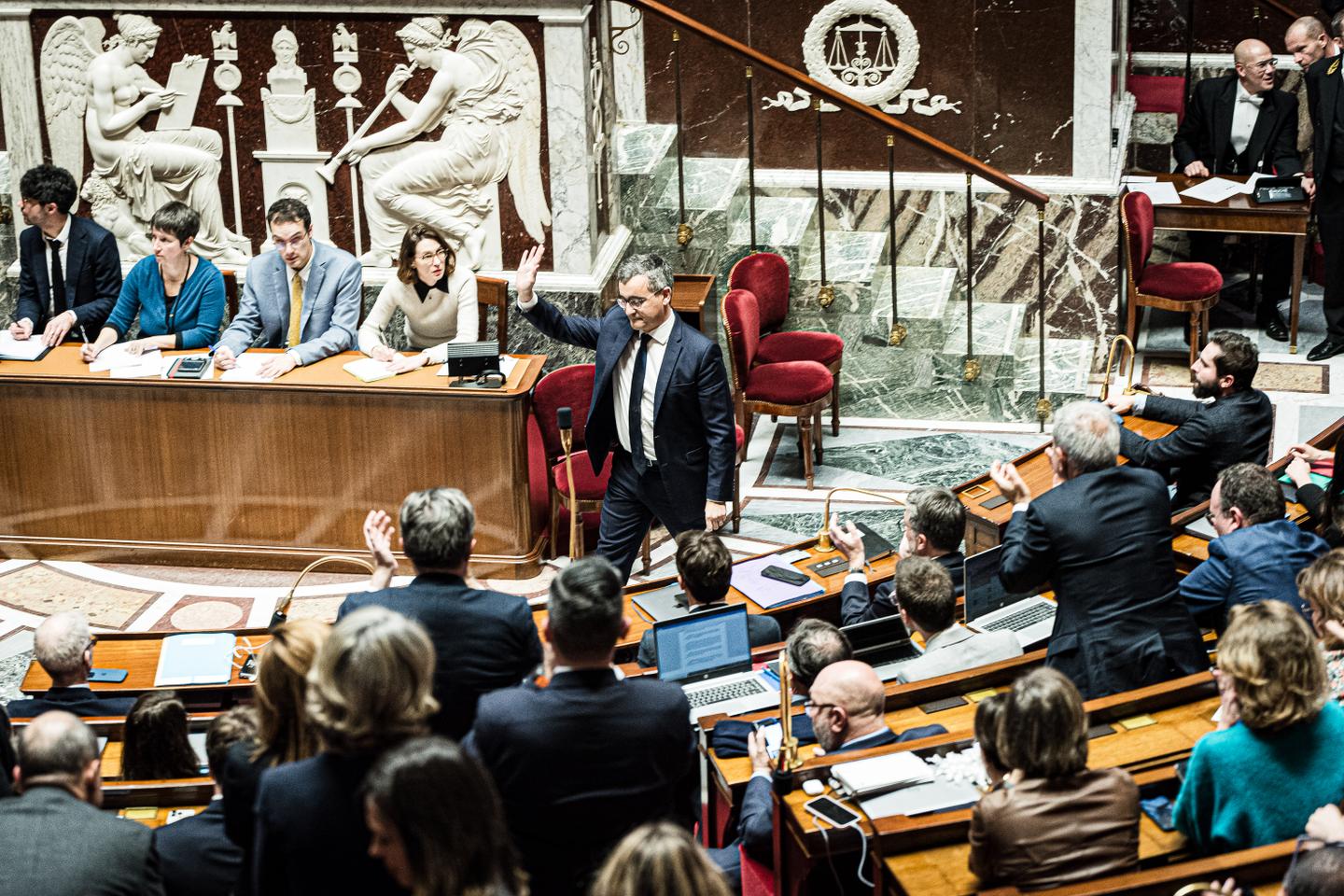


A bill that was inspired by the far right and passed in a panic under pressure from a government that claimed to embody moderation. In the 40 years that the French political debate has focused on immigration, rarely has a government demonstrated such a degree of compromise with the parties that thrive on scapegoating foreigners. And never before has a government accepted that an immigration bill, which it initially said was designed to rally the left and the right, end up as a text worthy of being in a Rassemblement National (RN, far-right) leaflet. The RN, aside from the final vote, was not even involved in the bill's conception. Never before has a government, and the country with it, been so at the mercy of the RN.
The version of the bill that the Parliamentary Joint Committee (CMP) agreed on on Tuesday, December 19, and that was adopted by the Sénat and the Assemblée Nationale, not only breaks with the balance of the initial draft that was defended for over a year by the government, but it also features measures that call into question fundamental republican principles such as equal social rights and the jus soli.
The initial bill, supported by public opinion, combined a series of repressive and restrictive provisions aimed at facilitating deportations, speeding up asylum requests, requiring a minimum level of French to obtain a residence permit, as well as a measure unseen in decades – a right to regularization for undocumented workers in short-staffed occupations, which has been virtually erased in the end.
'Ideological victory' for Le Pen
A series of measures taken by Les Républicains (LR, right) from the RN's policy program were complacently accepted by the government and incorporated into the bill. Some of these measures include restricting access to social benefits for documented foreigners, ending the automatic acquisition of nationality for children of foreigners born in France, excluding undocumented migrants from emergency accommodation, and a promise to reform State Medical Aid (AME).
These measures have little effect on the problems they claim to tackle, but by including them in the bill, the government has sent out a message that the vindictive rhetoric of the far right has been validated, marking the "ideological victory" of Marine Le Pen, as she herself put it.
Macron, who should have given up on a project beyond his control, instead accepted it to shift dramatically. The trap began with the vote, on Monday, December 11, of a motion of rejection by the united oppositions and continued when the right-wing-dominated CMP was tasked with finding a compromise. The government, caught between its desire to pass the bill at any cost, and the tactics of LR elected representatives, themselves following in the footsteps of the RN, gave up the values it claimed to uphold, the coherence of its approach, and the unity of its majority. It was shattered when Le Pen, tying the noose, announced in the afternoon that she would vote in favor of the text.
The debate and vote on this law left a deep scar. Almost a quarter of the majority MPs defected by abstaining or voting against the bill. Several ministers, including the Minister of Health Aurélien Rousseau, consider resigning. The rift is both political and moral.
Macron, who was twice elected on the promise of blocking the far right, has instead acted as a conduit of its ideology, highlighted as never before during the last few days' public political discussions. Can he still play the role of unifier and fighter against the political exploitation of xenophobia that the country so desperately needs?
